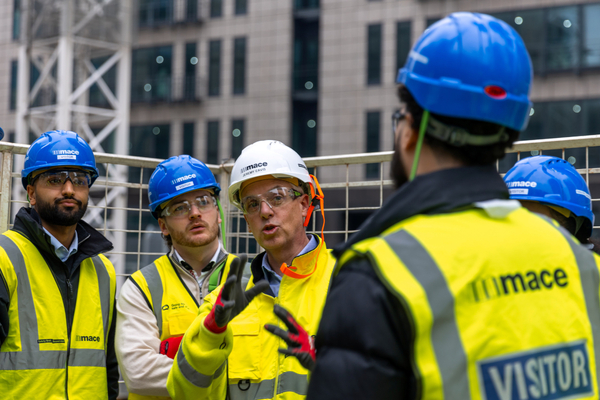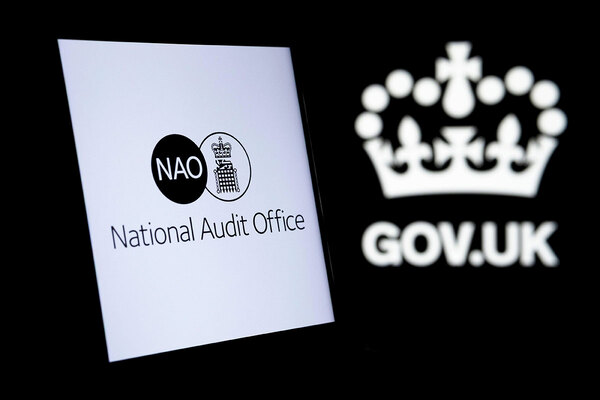Royal Borough of Greenwich helps council residents make sense of energy reduction
In the 12 months to March 2023, electricity prices in the UK rose by 66.7% (ONS) leading to growing concern around energy bills. Set in the wider context of the current cost of living crisis and the global imperative to reach Net Zero, the Royal Borough of Greenwich (RBG) sought to offer impactful assistance to residents to reduce energy use.
In a project funded by the UK government, alongside its innovation partner, DG Cities, RBG set out to identify strategies and technologies that could deliver tangible benefits and support to residents, helping them to develop a greater understanding of energy consumption, associated costs, and ways to reduce them. Recognising the power of behaviour change approaches, they also considered how to connect residents to support shared learning to increase motivation and engagement.
The team at RBG considered a variety of solutions focusing on technologies that were simple to use and unobtrusive, could be deployed quickly and easily, and that were accessible as possible. Following extensive research, Sense proved a compelling proposition.
Making real-time sense of energy at device level
Sense’s AI technology analyses energy consumption at a rapid frequency of thousands of samples per second, identifying in real-time which household appliances are on or off, monitoring whole home and individual device consumption, and in some cases, detecting potential faults. Sense’s ability to identify a wide range of household appliances in real-time is based on its extensive dataset, with over 100,000 years of in-home data, enabling the identification of over 1 million unique energy appliances.
Within this pilot, households that volunteered to take part received an R&D Sense energy monitor which was installed directly into their fuse boxes.
Once installed Sense started to measure the electricity consumption of the whole home, as well as individual devices, and residents could monitor energy usage in real-time via the smartphone app. Its app interface is designed to be accessible to users with different accessibility needs. And, in addition to the real-time experience, the app delivers monthly reports to the user, providing information such as total energy usage and cost, trends in energy usage over time, and reporting on the energy performance of certain devices.
In parallel, DG Cities developed a behaviour change strategy for residents; the ’Energy Community’ via a WhatsApp group to connect trial participants to share experiences and information. The team sent energy-saving ideas, and tips to maximise use of the Sense app, setting a series of nudge challenges based on unlocking data trends they were seeing in the energy usage data. The behavioural change strategy was developed with an extensive literature review of best practices, from well-established theoretical models and in conversation with academics in the field.
Positive change, tangible results
Using Sense, unlocking energy data has brought about positive changes in the energy consumption habits of council residents. This has not only increased their awareness of energy management practices but also improved energy efficiency within their homes.
Enhanced Energy Efficiency Awareness
Throughout this UK trial, Sense’s AI and its robust dataset provided council residents with a deeper understanding of their energy use, specifically around individual devices. Each home was able to identify individual devices ranging from microwaves and ovens to hoovers and space heaters.
Once a device was identified by the Sense monitor, the energy usage and estimated cost of that device was recorded and reported back to the resident in real-time, as well as being tracked for daily/ weekly/ monthly views, improving their knowledge of electricity usage in their home by providing more detailed, granular information.
At the same time the Energy Community WhatsApp group maintained a good level of engagement, with bi-weekly information and nudges, and providing a community space where people have been asking questions, sharing, and supporting each other.
Effective Energy Use Management and Reduction
An overarching element of the trial was to support the Council’s broader objectives to reduce carbon emissions on the road to net zero, as well as cost savings for both the Council and residents.
Over the last six months, emerging findings on energy use reduction show nearly half of the participants reduced their average weekly electricity use since they started the trial. The associated smartphone app saw high levels of engagement for some, identifying different devices, looking at cost projections for the month, and trying new measures to reduce the amount of ‘Always On’ electricity they were consuming.
During a recent challenge to encourage participants to look at devices that are ‘Always On’ (such as TVs, printers, and games consoles) there was a reduction in electricity use of up to 20% for one household, and 4% for the group overall compared to the weeks prior.
Nearly 50% of residents have seen a reduction of at least 5% in their weekly moving average electricity use (and some quite higher). For those using more than 100W of ‘Always On’, if they made a slight 10W reduction this would result in a £26 per year saving on their electricity bill.
Data analysis also identified a handful of homes with inefficient fridges, likely due to their age. These fridges were using two to three times more power than a newer and more efficient fridge. Spending £250 on a new fridge by/for these homes would save the occupants around £100 per year in electricity. This type of finding provides the council with valuable insight to support residents.
This is key to making a difference during an enduring cost of living crisis.
At Unlock Net Zero Live on the 22nd November we will be hosting a panel session focusing on the importance of data for the design of energy efficiency and retrofit programmes. Register now to hear from speakers from Inenco, Metropolitan Thames Valley, Energy Savings Trust and the Communities & Housing Investment Consortium




